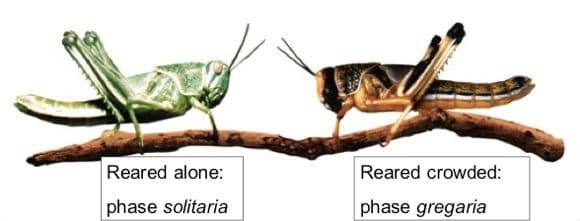🧵 View Thread
🧵 Thread (28 tweets)

I like this story. Important to note that many humans have the capacity to climb Everest without oxygen. One guy even figured out how to change his diet to enable him to.https://t.co/bVezQ2Vtdx https://t.co/CFBBFbdboV

Warm bloodedness - a key characteristic of mamal's evolutionary history - actually developed in the Late Permian period. https://t.co/yIXxYYM11K https://t.co/BlqALZK8ip

One of the reasons I was researching frog gender hormones is I believe there are interesting ties to lungs and oxygen/ATP related processes that show up in our evolutionary history. Many that scientists still don't really understand.https://t.co/WKIzfAMgxt

It's easy to take these stories and assume things in how they work. If we can argue that birds evolved the ability to fly in low O2 environments because of Permian era, the same argument seems to also apply to mammal ancestry?Maybe amphibian too.https://t.co/cG67Euljjp

We assume so quickly that high-altitude adaptations are genetic, and then go and look for genetic underpinnings. No one stops to question if normal humans could perhaps also develop similar adaptations thru microbial epigenetic reprogramming. https://t.co/aIaBLrmjiN

There maybe even different genetic adaptations - ones that involve being able to support microbes that improve heart/blood-vessel/o2 function - that no one would be looking for, and even if we did, western traditions may have killed them all off.

Maybe it is my own bias that makes me think these things are more important that commonly understood, but I can't help but think that we are just overlooking entire swaths of adaptive capacity because of our fetish for genetics.https://t.co/kQbJ5w4kwm

A good example of this in action is exploring the way that genetically similar locust end up shifting their entire physiology in response to a serotonin related process.It was only January 2019 that we had a good study their gut! https://t.co/aDCA895UWMhttps://t.co/QXc9KVzZVO

It could be that the Bobtailed Squid's light organ reprogramming is a fluke and rare in nature. But after learning about sea water having depths of anoxic layers, it seems reasonable to assume microbes may even play a role in deep sea animal's metabolism.https://t.co/Zh9DhaRnjX

"show that, [...] taxonomic composition and functions of mouse gut microbiota converge in independent high‐altitude environments and propose the intriguing hypothesis that some of these functional convergences might be beneficial to their host." [2019]https://t.co/vYynb9I9iQ

"Previous studies investigating such convergent adaptations have primarily looked at changes in host genomes (e.g., see Scheinfeldt & Tishkoff, 2010), but have rarely considered the potential role of the gut microbiome in mediating host adaptation."Nice.

BTW, if you ever wanna do intensive testing on mice metabolic profiles in response to low O2 envirionments under the light of microbial populations interacting with immune related genes…Check out @sablesys https://t.co/h33YyxUffAhttps://t.co/xoJ56Wz19Mhttps://t.co/qYLdn3MiUQ

Have you considered the reason why spleens seem to improve diving ability?https://t.co/unELaTM6s2

"The body weight changes of the high altitude and pair-fed groups were identical through day 10 and the urinary nitrogen excretions were similar throughout the study." [1971]https://t.co/Q2G2dSiiqchttps://t.co/V8UXLw8iBa

Fun to imagine how O2/CO2 concentrations as seen in mountain dwelling rodents end up triggering mammalian hibernation/Aestivation responses like we see in hedgehogs. Do you think the lower food intake was an adaptive response but misapplied? https://t.co/D2ZG9fQhzg

@visakanv Something interesting is happening with air pressure and altitude for me. https://t.co/E8Cv2gzrNx I'm living on a mountain and I am always way calmer. Been trying to find correlates between air pressure and physiological panic. I wonder if cells are simply better absorbing CO2

We really need to understand this space better, it seems.https://t.co/7GCoZxdYk4

"A significant decrease (p < 0.05) in [respiratory exchange ratio] was observed after 20 and 40 days in the [ketogenic diet] group, but not in the [Mediterranean diet] group. [...] may significantly decrease carbon dioxide body stores"https://t.co/DFEUvnfNKf

It annoys me that we just assume human high altitude tolerance is genetic but didn't bother to investigate their gut/diet. We have some studies exploring that now that are fascinating. https://t.co/uGia0ppU7hhttps://t.co/9iMgo7GPgn

Funny to think that we have more data about the diet and gut of wild house mice at different altitudes than we do of people and lab animals. https://t.co/2jrZqPEdgB

"What is he doing?He's Beginning to Believe..."https://t.co/d5IcgRUhzBhttps://t.co/E0wLUIspgQ

A flavor for every day of the week. o_0https://t.co/p48rIRx0dO

Everything you think, do, or say, is in the dog shit pill you took that day.Bark. Woof.https://t.co/YvJ85h4qqH

I wonder if this shows up in in meaningful gut bacteria changes. Can you do an FMT to get people to better handle hypoxia? This should be testable on mice models. https://t.co/CkKiBLllIV

Have you ever wondered if sulfurous farts can make a mouse hibernate? https://t.co/TnxybR6BbpWonder no more.https://t.co/acAMliWuFa

"Intrauterine Hypoxia Changed the Colonization of the Gut Microbiota in Newborn Rats"https://t.co/taCueL8hl6https://t.co/INs33F9A9x

"Targeting microbiota will be a promising approach to curtail metabolic risks of [Chronic intermittent hypoxia] clinically." [March 2022]https://t.co/oBryB8ArIITired: brain farts.Wired: dream stinkclouds.https://t.co/3IvizLPiZm

I can hallucinate ideas in my dreams that drive meaningful insights into real biology."We have shown that gut dysbiosis plays a causal role in the development of hypertension in a rat model of obstructive sleep apnea (OSA)."https://t.co/QCkiSYLcNgLMAO https://t.co/uFnyVAr4Yj


